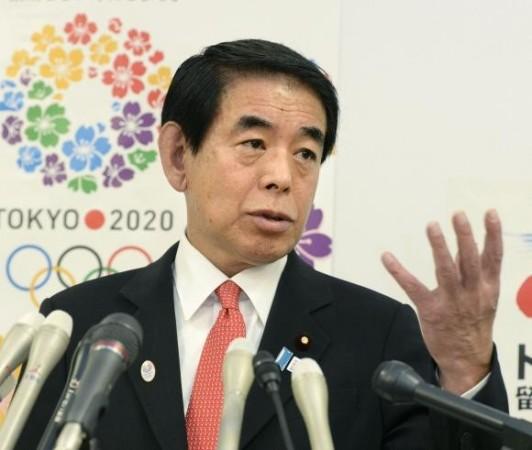
Japanese Education Minister Hakubun Shimonura has announced a revision in school teaching manuals or syllabus for junior and senior high schools to claim island territories that are currently in dispute among Japan, China and South Korea.
Japan's Kyodo News agency has reported that the new teaching manuals describe the disputed territories as the country's "integral parts".
The newly revised modules approved by the Education ministry will change the lessons of history and geography in schools. It will claim that the islands in the East China Sea, known as Senkaku in Japan and Diaoyu in China, as well as the South Korea-controlled Dokdo islands that Japan calls Takeshima are integral parts of Japanese territory.
The manuals will also note that the Takeshima islands are illegally occupied by South Korea. The curriculum will argue that it does not even recognize a territorial dispute over the Senkaku islands, the Japanese government said.
"From the educational point of view, it is natural for a state to teach its children about integral parts of its own territory," Education Minister Hakubun Shimomura said in a news conference.
He added that "with the co-operation of our Foreign Ministry, we will explain the country's position to our neighbours".
South Korea has strongly protested the move with officials calling the revision a "very serious" matter, Yonhap News Agency reported. The agency added that Seoul also planned to summon the Japanese ambassador to South Korea to lodge a complaint.
China has also lodged a protest saying that the islands have always been Chinese.
"We once more urge Japan to respect historic realities, stop provocations and teach the younger generation a correct historical perspective," Hua Chunying, spokeswoman of the Chinese Foreign Ministry said in a daily news briefing.
The shocking move comes at a time when Prime Minister Shinzo Abe stirred controversy with his uncompromising attitude towards territorial claim. He also made a visit last month to the infamous Yasukuni Shrine, which is seen by both China and South Korea as a symbol of Japan's war-time aggression.
China's state-owned Xinhua News agency noted that it is unusual for Japan to revise the manuals at this time as they are revised every 10 years along with the amendment of curriculum guidelines. Japans' Kyodo News Agency said that the existing teaching manuals for junior and senior high schools were published in 2008 and 2009, respectively, an indication that it was not really the time to change the syllabus.
Japan, in the past, has revised many contents of history books of secondary schools, in what has always been perceived as the country's efforts to whitewash the actions of the Empire of Japan during World War II.


!['Kaise ho bhai..': PM Modi shook hands with Akshay Kumar at a media summit in Delhi [Watch] 'Kaise ho bhai..': PM Modi shook hands with Akshay Kumar at a media summit in Delhi [Watch]](https://data1.ibtimes.co.in/en/full/806317/kaise-ho-bhai-pm-modi-shook-hands-akshay-kumar-media-summit-delhi-watch.jpg?w=220&h=135&l=50&t=40)


!['Kaise ho bhai..': PM Modi shook hands with Akshay Kumar at a media summit in Delhi [Watch]](https://data1.ibtimes.co.in/en/full/806317/kaise-ho-bhai-pm-modi-shook-hands-akshay-kumar-media-summit-delhi-watch.jpg?w=220&h=138)








!['Kaise ho bhai..': PM Modi shook hands with Akshay Kumar at a media summit in Delhi [Watch]](https://data1.ibtimes.co.in/en/full/806317/kaise-ho-bhai-pm-modi-shook-hands-akshay-kumar-media-summit-delhi-watch.jpg?w=220&h=135)


